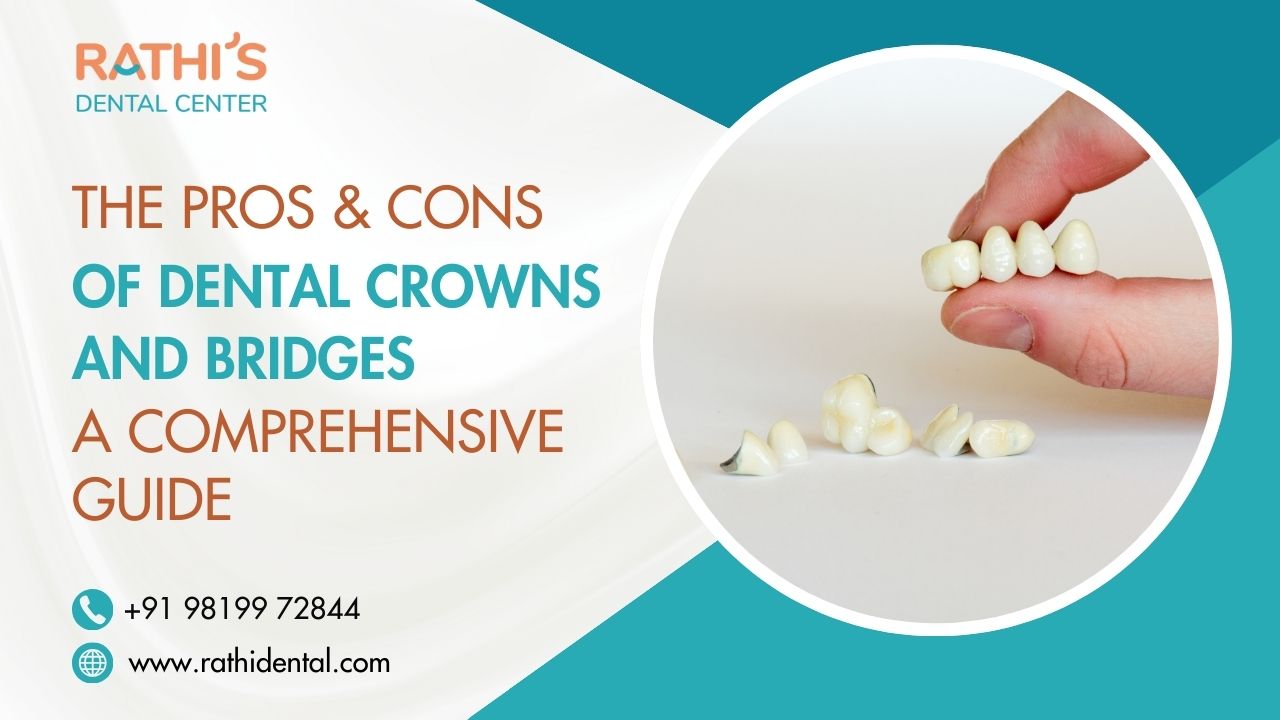
Hey there! If you're reading this, there's a possible chance you're dealing with some kind of dental issue — maybe a cracked tooth, or even a gap from a missing tooth. Teeth problems are no fun, and figuring out the best solution can be overwhelming. But don’t stress! Dental crowns and bridges are two of the most common options for fixing those issues, and we're here to break them down for you, without all the confusing dental speak.
By the end of this guide, you’ll know exactly what crowns and bridges are, how they work, and which one might be best for you. So let’s explore.
What Are Dental Crowns?
You’ve got a tooth that’s seen better days. Maybe it's cracked, chipped, or so decayed that you don’t think it can be saved. This is where a dental crown steps in. Think of a crown as a superhero cape for your tooth. It’s a custom-made cap that fits snugly over the existing tooth, giving it new life and protecting it from further damage. If your tooth is hanging on by a thread but still has some good structure, a crown can give it a second chance.
The Pros of Dental Crowns:
Tooth Preservation: Crowns are great at saving teeth that are damaged but still functional. Instead of removing the tooth entirely, a crown can help preserve what’s left and restore it.
Durability: Once placed, a crown can last anywhere from 10 to 15 years (sometimes even longer!) with proper care. So, it's an investment that keeps on giving.
Natural Look: Modern crowns are made of materials like porcelain or ceramic, which match the natural color of your teeth. That means your smile stays looking great — no one will even know you have a crown!
The Cons of Dental Crowns:
Tooth Preparation: Getting a crown usually requires reshaping your tooth, which means a bit of drilling. This is done to ensure the crown fits perfectly, but it might feel a little intimidating.
Cost: Crowns can be a bit pricey. Depending on your budget, you might be paying out-of-pocket, and the cost varies based on material and complexity.
Time Commitment: The process to get a crown typically takes two visits to your dentist: one for shaping the tooth and another for placing the crown. It’s not a one-and-done procedure.
What About Dental Bridges?
Now, let’s say you’ve lost a tooth (or a few). Gaps in your smile can make it harder to chew and might affect your confidence. Dental bridges are here to save the day! A bridge is a device that fills the gap left by a missing tooth, using the adjacent teeth as support. The false tooth is anchored in place, completing your smile and restoring functionality.
The Pros of Dental Bridges:
Restoring Function: Missing teeth can make chewing tricky, and even talking can be affected. Bridges restore both your bite and the natural function of your mouth.
Quick and Simple: Compared to dental implants, bridges are a faster fix. Typically, it takes just a couple of visits to your dentist to get a bridge in place.
Affordable: Bridges can be a more affordable option compared to dental implants, especially when you’re replacing multiple teeth.
The Cons of Dental Bridges:
Tooth Preparation: Just like with crowns, the adjacent teeth need to be reshaped to support the bridge. This might make you nervous, especially if those teeth are healthy and strong.
Possible Wear and Tear: While bridges are durable, they can wear out over time — typically lasting 5 to 10 years. The surrounding teeth might also experience extra stress, which could affect their longevity.
Not for Everyone: Bridges work best when your neighboring teeth are strong enough to support the structure. If those teeth are also compromised, you might need to look into other options like dental implants.
So… Which One Is Better for You? Crowns or Bridges?
That’s the million-dollar question, right? Well, it depends. If you have a tooth that’s still in place but damaged, a crown is likely your best option. It’ll protect and restore your tooth, allowing you to keep it for many years to come.
On the other hand, if you’ve lost a tooth or several, a bridge could be the perfect solution to fill in the gaps and bring back your smile. It’s like giving your mouth the finishing touch it’s been missing.
Here’s a simple rule:
Crowns are for damaged teeth that still need saving.
Bridges are for missing teeth and filling the gaps.
Figuring out the best dental clinic for dental crown & bridge treatment in Juhu? Then book an appointment with Rathi Dental Clinic for the best solution possible.
